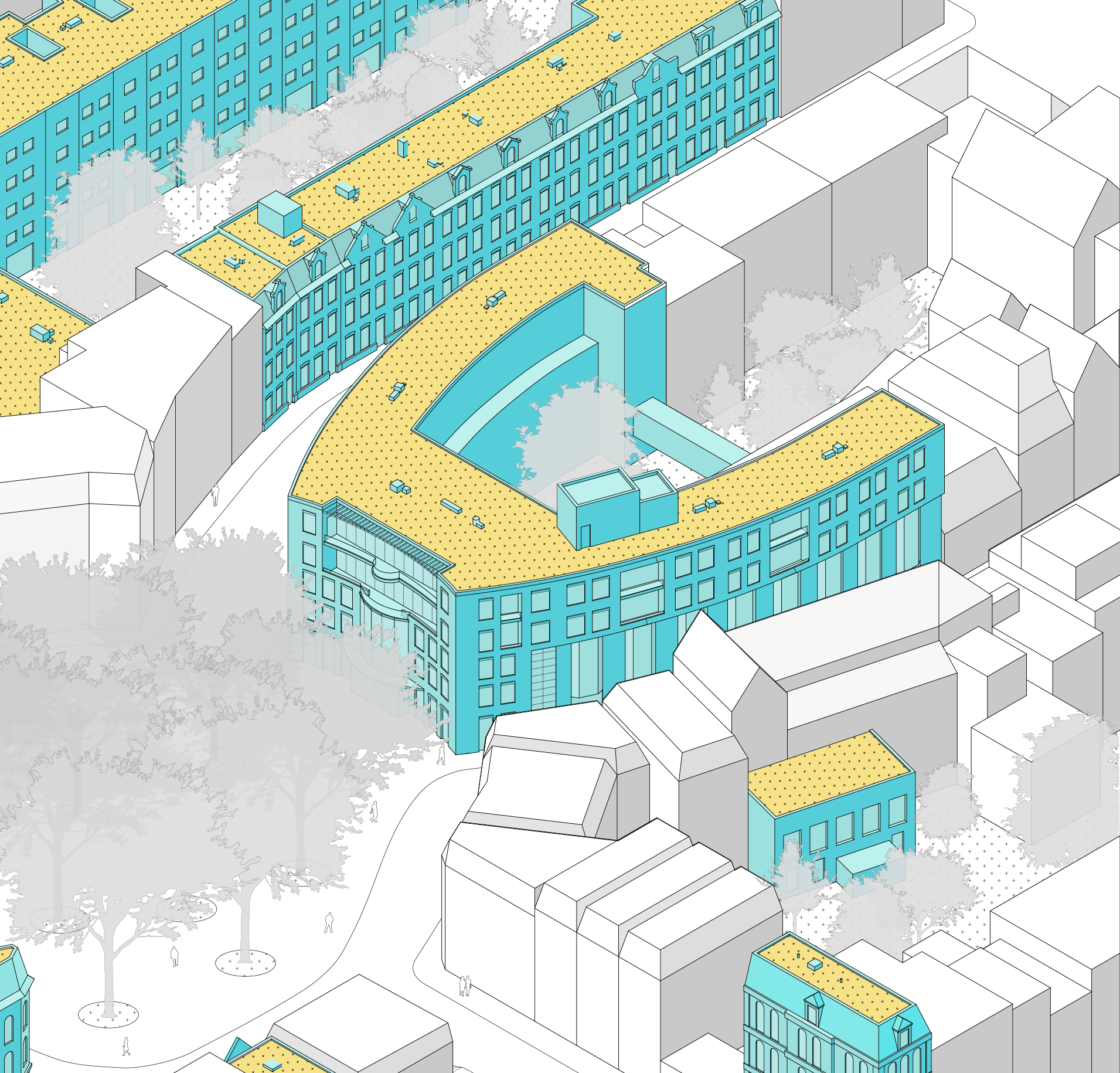
ROOFTOP MUNICIPAL STORMWATER MANAGEMENT
RESILIO BLUE-GREEN ROOF PROJECT (PILOT)
Amsterdam, Netherlands
2018–
Municipality of Amsterdam
Piggybacking Tactic
Inhabit a Niche
Spearheaded by the City of Amsterdam from 2018 to 2022, the RESILIO (Resilience nEtwork of Smart Innovative cLImate-adaptive rOoftops) pilot project tests the capacity of private roofs to help mitigate the deleterious effects of climate change in urban areas. It does so by piggybacking atop existing buildings with a new multilayer “blue-green” roofing ecosystem that incorporates plantings, water capture, and storage. Project goals include counteracting pluvial flooding, reducing the heat island effect, and increasing habitat and biodiversity in historic urban centers. These new blue-green roofs also include smart-flow technologies that are networked into a municipal data-collection system that monitors weather forecasts and moisture levels. The system is capable of responding in real time by either storing or releasing water from the roofs during periods of drought or flooding, thereby maintaining the health and integrity of local stormwater management systems. These networked and responsive capabilities, along with the project’s utilization of existing rooftops, single out RESILIO as an innovative approach to distributed public infrastructure.
The RESILIO pilot project enlisted a wide coalition of partners, including Waternet, MetroPolder Company, Rooftop Revolution, Amsterdam University of Applied Sciences, Vrije Universiteit Amsterdam, Stadgenoot, de Alliantie, and Lieven de Key. It was co-financed by the European Regional Development Fund through the Urban Innovative Actions Initiative. Retrofits of several social housing rooftops were financed directly, while one private rooftop build-out was financed through a public-grant scheme. The rooftops are now serving as laboratories of data collection and study, through which systems like these can be refined and scaled for future widespread application. As a coordinated and data-driven municipal climate-resilience network, RESILIO points to a possible near future where the externalities of private construction and the inherited constraints of legacy urban environments can be partially offset with an opportunistic overlay of responsive ecological habitat.


